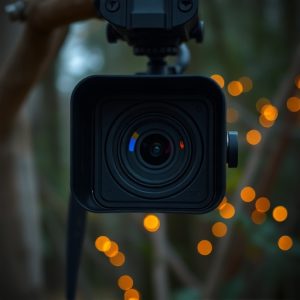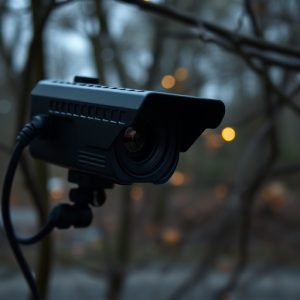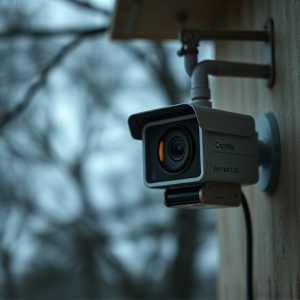Hidden Camera Laws by State: Everyday Objects as Discreet Surveillance Tools
In the US, Hidden Camera Laws by State vary significantly, requiring understanding for personal and…….
In the US, Hidden Camera Laws by State vary significantly, requiring understanding for personal and professional use. Some states enforce strict consent rules, while others permit hidden cameras under specific conditions like home security or law enforcement. These laws cover where and how these devices can be used in public or private spaces. Unauthorized installation carries severe consequences. Individuals must educate themselves about local regulations to maintain compliance, respect privacy rights, and avoid legal repercussions. Ethical use involves transparency, legitimate objectives, regular footage review, deletion, and secure storage.
“Uncover the world of hidden cameras concealed within everyday objects with our comprehensive guide. In an era where privacy concerns are paramount, understanding the legal landscape of hidden camera usage is essential. We break down ‘Hidden Camera Laws by State,’ offering a detailed overview to navigate this complex topic.
Explore how ordinary items can double as discreet recording devices and learn the ethical considerations surrounding their use. This guide equips readers with knowledge, ensuring responsible and lawful camera concealment practices.”
- Understanding Hidden Camera Laws: A Comprehensive Overview by State
- Everyday Objects as Discreet Cameras: What You Need to Know
- Ethical Considerations and Best Practices for Concealed Camera Use
Understanding Hidden Camera Laws: A Comprehensive Overview by State
In the United States, hidden camera laws vary significantly from state to state, reflecting a complex interplay between privacy rights and security measures. Understanding these laws is crucial for anyone considering the use of hidden cameras, whether for personal or professional purposes. Each state has its own set of regulations that dictate where and how these devices can be deployed, with varying degrees of restrictions based on scenarios like consent, surveillance, and public vs. private spaces.
For instance, some states have stringent rules regarding covert camera usage, requiring explicit consent from all parties involved in the observation. Others permit hidden cameras under specific circumstances, such as for home security or law enforcement purposes. It’s essential to research and familiarize yourself with the laws in your state to ensure compliance and respect for privacy rights. Awareness of Hidden Camera Laws by State is a critical step towards responsible and legal camera concealment practices.
Everyday Objects as Discreet Cameras: What You Need to Know
In today’s digital age, everyday objects can double as sophisticated hidden cameras, raising intriguing possibilities but also important legal considerations, especially regarding Hidden Camera Laws by State. From seemingly innocuous items like pen cameras to innovative tech-integrated devices, these concealed recordings tools are increasingly accessible. Their compact size allows for unobtrusive placement, making them a popular choice for surveillance and security purposes.
However, it’s crucial to understand the legal landscape surrounding hidden camera use, as regulations vary significantly across different states. Unlawful installation or use of such cameras can lead to serious legal repercussions. Before employing this technology, individuals must familiarize themselves with local laws governing privacy rights, consent requirements, and acceptable uses for hidden recordings to ensure compliance and respect for personal freedoms.
Ethical Considerations and Best Practices for Concealed Camera Use
When employing hidden cameras, it’s crucial to navigate a complex landscape of ethical and legal considerations. While these devices offer valuable insights for security, surveillance, or documentation purposes, their use raises significant privacy concerns. Understanding local Hidden Camera Laws by State is essential; regulations vary widely, with some states having stringent restrictions on the placement and use of hidden cameras, while others are more permissive. Always ensure explicit consent when capturing footage, especially in public spaces, to respect the rights of individuals and avoid potential legal repercussions.
Best practices for concealed camera usage include maintaining transparency whenever possible; inform subjects or residents that surveillance is ongoing. Additionally, focus on legitimate objectives, such as enhancing security or gathering evidence for specific purposes. Avoid using hidden cameras for invasive or malicious reasons. Regularly review and delete recorded footage to protect privacy, and store devices securely to prevent unauthorized access. Ethical use of hidden cameras requires a balance between privacy protection and legitimate interests, adhering to legal frameworks while prioritizing ethical conduct.
In conclusion, while everyday objects can be creatively used as hidden cameras, it’s crucial to navigate the intricate web of Hidden Camera Laws by State and adhere to ethical best practices. Understanding local regulations and prioritizing responsible use ensures a balance between privacy protection and leveraging these innovative tools. Remember that awareness and transparency are key to maintaining a harmonious relationship with technology in our daily lives.


